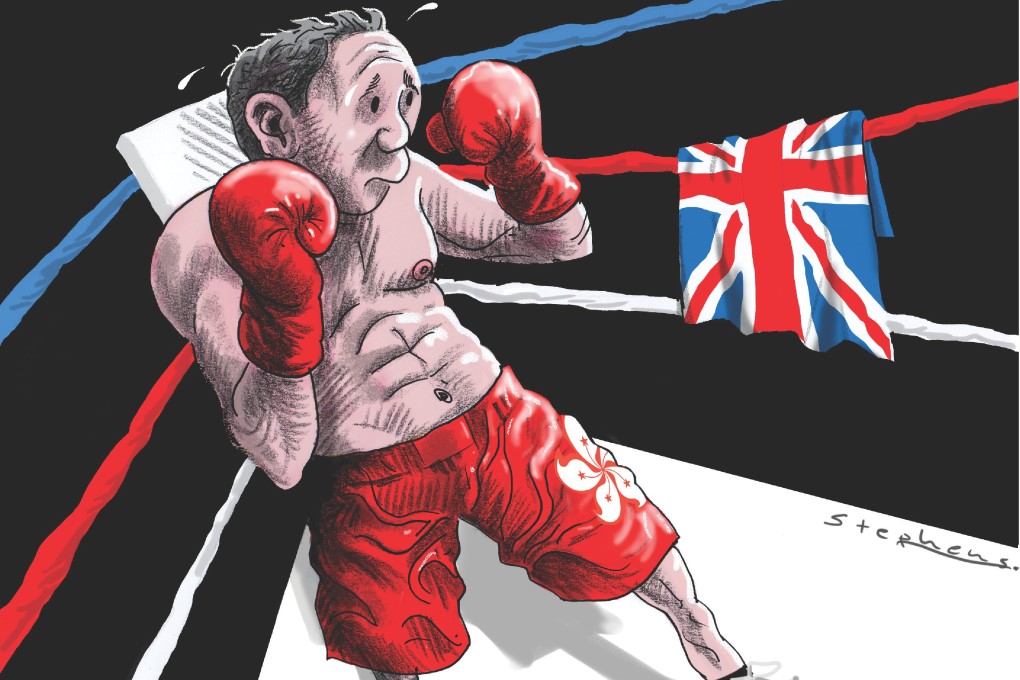When push comes to shove, don't expect Britain to stand up for Hong Kong's rights
Alvin Cheung says while Britain was right to raise concerns about promises made to Hong Kong under international law, people here should also remember that, when it comes to the crunch, that concern only goes so far

More than 30 years after the signing of the Sino-British Joint Declaration, the governments in Beijing and Hong Kong would much rather that the world forget it had been signed in the first place. Last December, Secretary for Constitutional and Mainland Affairs Raymond Tam Chi-yuen claimed that "[t]he provisions of the Joint Declaration have been fully implemented, and its purpose and objectives have also been fully fulfilled".
Similarly, Chen Zuoer , former deputy director of the Hong Kong and Macau Affairs Office, asserted that the "theme" of the Joint Declaration had been accomplished in 1997.
The report into the Joint Declaration by the UK House of Commons Foreign Affairs Committee, released this month, is a timely rebuke to that sentiment. It is a reminder that Hong Kong's handover was, and continues to be, the subject of Chinese commitments under international law. It is also a reminder that threats to Hongkongers' fundamental rights, and to Hong Kong's promised "high degree of autonomy", infringe these commitments.
The report covered areas as diverse as economic and trade relations, the work of the British Council, and visa-free travel for holders of British National (Overseas) passports. However, the bulk of it considered democratisation and the protection of fundamental rights in Hong Kong, as well as growing perceptions that these rights are being undermined.
Given the timing of the inquiry, it was inevitable that the report devoted considerable attention to Beijing's proposed electoral reforms for Hong Kong's chief executive election in 2017. The report declined to adopt the argument that the Joint Declaration requires elections to be conducted in a manner consistent with the International Covenant on Civil and Political Rights. Nonetheless, the committee roundly criticised the Foreign and Commonwealth Office for its "misleading" and "evasive" language in its response to the National People's Congress Standing Committee's August 31 decision.
The report concluded - rightly - that the decision did not offer a "genuine choice" to the Hong Kong electorate. Nor was it consistent, the committee declared, with the principle that Hong Kong should enjoy a "high degree of autonomy".
Further, the report critically examined Beijing's adherence to the express commitments in the Joint Declaration. The Joint Declaration explicitly guarantees numerous fundamental rights, including freedom of the press and freedom of assembly. Yet - as the committee observed - there have been widespread perceptions that these rights are under threat.